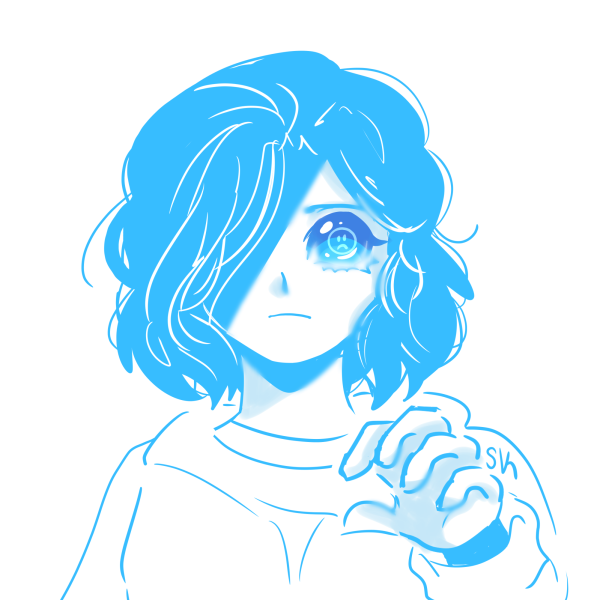Northern Michigan University is much more than its highlight reel of popular majors. Northern is an organism that survives off of an intricate web of interactions between its smaller parts. What it means to ‘beNorthern’ includes the perspective of every student learning and developing here because, without its students and their tenacity for knowledge and connection, we would be a lifeless university. This is why even the smaller functions of Northern hold great importance; NMU isn’t a specialized school designed specifically for biology or nursing students. It was created on the foundations of exploration and diversity.
On Wednesday morning, it was my mission to embark on an endeavor to highlight the underdogs of NMU. My goal was to showcase the smaller, less appreciated programs at Northern by talking with students who are often overshadowed by the more established, flashier programs.
Rather than provide an exhausting litany of reasons why NMU should better fund its smaller programs even though there are fewer people in them like I was initially planning to write, I will instead let those students speak for their programs.
Whitman Hall, 10:42 a.m.
I was disappointed, but not surprised, to find not a soul in Whitman Hall. I had high hopes to talk with a Native American studies student or someone in the languages department. My several laps through the halls felt desolate– low ceilings, dark lighting, a rustic smell. I predict that the only possibility of renovation to Whitman Hall would be to shut down the culture and languages department and repurpose the building into more laboratory space. The lack of students and modernity speaks as loud as any interview would because as compared to the Science Building or Jamrich, there was no learning happening in Whitman in the middle of a school day that I could find.
Jamrich Hall, 10:51 a.m.
Bustling with students, Jamrich is the pumping heart of Northern. I figured that while I would have to do some asking around, there would be every type of student in Jamrich Hall. Sheepishly, I approached seven different students, asking them the notorious question: “What is your major?”
One student said elementary education. Not good enough.
Three students said biology. Don’t they have their own building?
Three students said nursing. Good for them. They’re proving my point, though.
At this point, I was sweating through my jacket from basically cold calling these unsuspecting students face-to-face. I left Jamrich Hall at 11:01 a.m., after only nine minutes of effort.
Thomas Fine Arts, 11:03 a.m.
There is no common area in the TFA building, and I am in no position to interrupt a class.
The Northern Center, 11:11 a.m.
I arrived at the cosmetology department, this time at least knowing why everyone there is at NMU.
After some shuffling, the program coordinator wrestled in two students for me to talk to. Everyone seemed on guard and suspicious of me, asking me more questions than I asked them. My six-minute presence was an apparent massive inconvenience. I was ready to throw up. What I did learn is that these students are justified in their disdain to reflect on their program, because they’re forced to pay for their own products that they use on clients due to a lack of funding.
While the two girls I talked to appreciate the more hands-on experience of working directly with clients and a “clearer path of employment,” their main concern is the quality of the products they use to operate their student salon. One of the students told me “There’s a lot of things we can’t do for clients because we either don’t have the products or they’re not nice enough.”
When I asked the question “Do you feel that NMU provides the proper resources for your discipline?” Both of the students laughed. They reported that they receive the “basic essentials” to run a salon, and that “everything else” has to come from them. Between tuition costs and course materials, it shouldn’t be on the cosmetology students to pay for the products used to operate a salon that NMU owns.
Phone Interview, 1:42 p.m.
I had the pleasure of talking with Jada Drotar, a student in the anthropology program who agreed to a phone interview later in the day. Similar to the cosmetology students, she reported that her favorite aspect of her program is the hands-on experiences she’s had while at NMU. Her program allowed her to go on a month-long archeological dig during the summer on Beaver Island, conducting research for the local museums, and building close relationships with her small cohort of classmates.
What upsets Drotar is that there is so much untapped potential for the program. She says there is so much passion behind it from her professors and classmates.
“There needs to be a linguistic anthropology concentration,” Drotar said. “It’s a large part of anthropology that we don’t learn about because the program isn’t big enough. We’re able to do a lot with the little resources we have, so if there were more, we would utilize them too.”
The anthropology students constantly make discoveries about the cultural history of the U.P. through their research-intensive classes and yet receive little recognition for their feats.
There is not only a funding divide, but also an attention divide between programs at NMU. If these programs continue to be ignored, it will be that much easier for the administration to remove them altogether in the future.

























